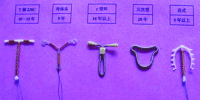Academic fraud in China: 43 medical studies retracted

by Michael Woodhead
Medical research fraud in China – the latest development is the discovery of widespread fake peer review. The open access publisher BioMedCentral has this week announced the retraction of 43 medical journal publications by Chinese researchers after it discovered widespread peer review fraud. Most of the articles were submitted by medical researchers at universities in China, including China Medical University, Sichuan University, Shandong University and Jiaotong University Medical School. A full list is given at https://www.biomedcentral.com
Here’s how fake peer review works:
When a scientific paper is submitted for publication to an academic journal, the journal invites authors to suggest potential reviewers for their papers. The authors or their agents can then provide bogus names with e-mail addresses that go directly to them. They fill in their own peer review form, and bingo – satisfy the publisher’s requirements, without actually having the article checked by an independent reviewer. There’s a full article on the topic in Nature.
According to Ivan Oransky’s Retraction Watch, the BioMedCentral senior editor of scientific integrity Elizabeth Moylan said some of the fake peer reviews “appear to have been conducted by third-party agencies offering language-editing and submission assistance to authors. It is unclear whether the authors of the manuscripts involved were aware that the agencies were proposing fabricated reviewers on their behalf or whether authors proposed fabricated names directly themselves.”
On BioMedCentral’s blog, she wrote that “During the course of our investigation, authors have shared with us the names of third-party agencies that offer support to authors but also guarantee favourable peer review outcomes in return for a fee. Other services sell authorship on entire papers written by others. Clearly, there is a need to distinguish the characteristics of reputable third-party agencies from those that are dishonest (in much the same way that bona fide open access publishers can be distinguished from those that are predatory).”
Fake peer review problem
To try combat the fake peer review scams, the publishers have deactivated the automatic “suggest peer reviewer” box in the submission forms. Authors will now have to suggest peer reviewers in their covering letter, and provide verifiable email addresses for their institutions. Other journal editors say this is too lenient, and that authors should not be allowed to suggest peer reviewers at all.
The publishers are at pains to suggest this is not just a China problem. Other incidents of fake peer review have been reported recently from other countries, including South Korea and Taiwan (the latter even resulted in the resignation of a government minister whose name had been cited as a co-author on several of the fraudulent publications).
As the BMC publishers point out, peer review is based on trust, and there is only so much that can be done to prevent deliberate fraud. One of the key factors driving the fake peer review in China is the need for Chinese doctors to publish a quota of papers each year in order to retain their posts and qualify for promotion. It is literally publish or perish, career-wise. I’ve previously blogged about China’s publish-for-promotion system for doctors and the scams it encourages, including the use of agencies and ghostwriters to generate scientific papers. This latest development seems to suggest that there are now ghost reviewers too.







